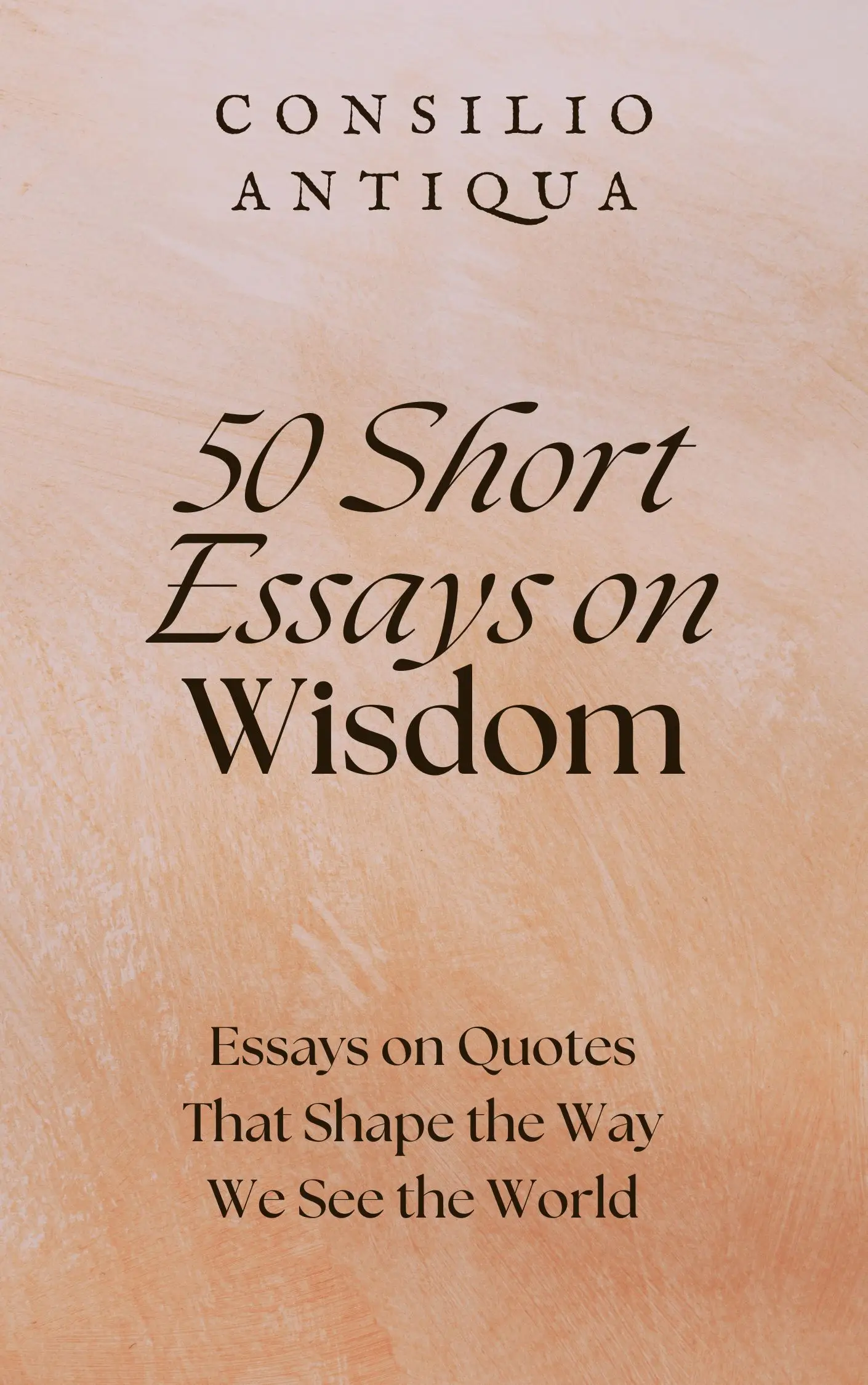
50 Short Essays on Wisdom | Finding Peace in a Fractured World
Finding Peace in a Fractured World
"Live and let live." - George George
The world spins, a dizzying kaleidoscope of conflicting ideologies, clashing cultures, and individual struggles. Amidst the chaos, a simple phrase whispers a promise of peace: "Live and let live." Yet, this seemingly straightforward maxim holds within it a universe of complexities, a challenge to our ingrained biases and a pathway to a more harmonious existence. This essay explores the enduring wisdom of "live and let live," tracing its historical roots, unpacking its core principles, and examining its relevance in navigating the fractured landscape of the modern world.
The concept of tolerance, the bedrock of "live and let live," finds echoes throughout history. Ancient Greek philosophers debated the nature of justice and the importance of respecting differing viewpoints. Eastern religions, from Buddhism to Taoism, emphasized compassion and non-judgment as essential paths to enlightenment. While the specific phrasing may vary, the underlying principle—the acceptance of others' right to exist and pursue their own paths—has resonated across cultures and centuries. The Roman concept of sufferance, though often enforced through power, nonetheless implied a recognition of the other's existence, even if not their equal rights.
At its heart, "live and let live" is a call for empathy, a recognition of the inherent worth and dignity of every individual, regardless of their beliefs, choices, or background. It's not merely passive acceptance; it's an active commitment to respecting boundaries, fostering understanding, and creating space for difference. It demands a willingness to engage with perspectives that challenge our own, to listen without judgment, and to find common ground amidst diversity. This wisdom endures because it speaks to a fundamental human need: the yearning for connection and belonging in a world that often feels isolating and fragmented.
Applying "live and let live" in the 21st century presents unique challenges. In an age of instant communication and global interconnectedness, we are simultaneously more connected and more divided. Political polarization, social media echo chambers, and the rise of identity politics create fertile ground for conflict and intolerance. Consider the complexities of navigating differing viewpoints on climate change, social justice, or religious beliefs. The simple act of acknowledging another's perspective, even if we disagree vehemently, can feel like a radical act of defiance in our current climate. Yet, it is precisely in these moments of friction that the wisdom of "live and let live" shines brightest. A recent example: the ongoing debate surrounding gender identity and expression highlights the need for empathy and understanding, even amidst disagreement.
How, then, can we cultivate this gentle art of letting live in our own lives? It begins with self-reflection: examining our own biases, prejudices, and assumptions. It requires conscious effort to listen deeply, to seek to understand rather than to judge, and to approach conversations with curiosity rather than defensiveness. It means challenging our own echo chambers, seeking out diverse perspectives, and engaging in respectful dialogue, even with those who hold opposing views. Consider the small acts of kindness, the quiet gestures of acceptance, the conscious choice to extend grace—these are the building blocks of a more peaceful and harmonious world.
What if we approached disagreements not as battles to be won, but as opportunities for growth and understanding? What if we replaced judgment with curiosity, condemnation with compassion? The path is not always easy; it demands courage, humility, and a willingness to step outside our comfort zones. But the rewards—a more peaceful inner life and a more connected, compassionate world—are immeasurable. The gentle art of letting live is not a passive resignation to difference; it is an active cultivation of empathy, a testament to the enduring power of human connection, and a crucial step towards building a world where everyone can truly thrive.
